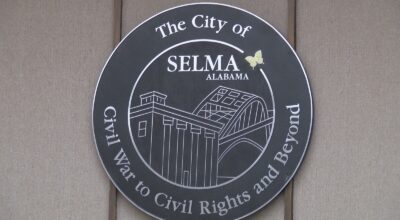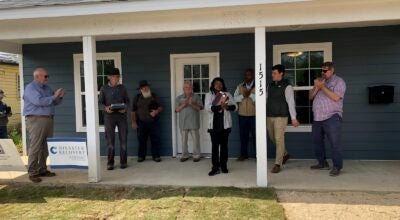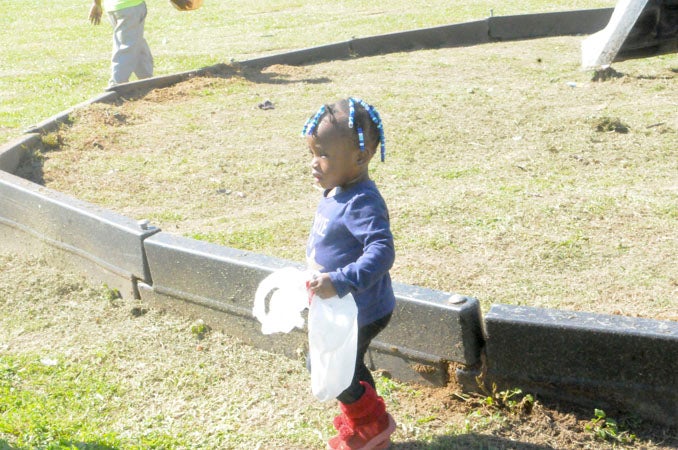The paradox of peaceful protest
Published 8:59 am Wednesday, June 3, 2020
|
Getting your Trinity Audio player ready...
|
White America loves a peaceful protest – it conjures up images of stone-faced civil rights protesters peaceably and silently demanding equality at a lunch counter or barefoot hippies cramming daisies into the ends of gun barrels as they called for an end to the Vietnam War – but white America often turns a blind eye to the rest, like the fact that those silent and peaceful civil rights protesters were beaten by angry mobs or how four of those barefoot hippies were shot to death in Ohio.
It’s the paradox of peaceful protest for the nation’s privileged populace, as we like to see people exercising their democratic right to protest but shudder with indignation when these freedom fighters refuse to disperse, refuse to lay down their signs and turn their fury toward the almighty business sector.
However, in doing so, we are ignoring the fact that these protesters have been in the streets for decades, peacefully gathering and pleading a reasonable case or taking a knee during “The Star-Spangled Banner” – equality in education, opportunity and society; an end to senseless violence perpetrated against black men and women – to no avail.
Perhaps these protests wouldn’t be necessary if authorities would take action and respond to the demands of black people – a manslaughter charge for the man who murdered George Floyd is not enough; authorities had the video of Ahmaud Arbery’s killing for weeks and took no action; countless others, some with no crimes to their names and others with only minor infractions, have suffered the same end, needlessly, with no justice in sight.
Additionally, to see the paradox in full display, recall for a moment that not long before these protests broke out across the country, another protest took place that included large gatherings of armed white men storming government buildings and demanding that the pandemic be canceled so they could sit down for a burger – there was not one death as a result of those protests.
That there is more fury over the riots and looting than there is over the continued and unjustifiable murder of black people is another ugly symptom of this paradox, which puts Rule of Law ahead of human dignity and prizes big-box retail shops more than human lives.
Given this fact, it should come as no surprise that protesters have taken to destroying property – we live in a country where the acquisition of money, power and things takes precedence over everything else and those who are good at it are given ultimate power over everyone and everything else; years of peaceful gatherings did nothing to quell the pandemic of violence being wrought upon the nation’s black community but, as soon as a Target is looted, everyone notices and most resort to their righteous indignation over the destruction of property.
Imagine what our society would be like if the people so outraged by appliances being yanked from a corporate retail store were just as incensed by the pointless murder of human beings.
But even the paradox itself is a paradox – so many people point to Dr. Martin Luther King Jr. as the epitome of how America’s alienated and oppressed populations should redress grievances with their government, forgetting on one hand that we are still fighting the same war King set out to win and, on the other, that the iconic civil rights leaders said this: “[I]t is not enough for me to stand before you tonight and condemn riots. It would be morally irresponsible for me to do that without, at the same time, condemning the contingent, intolerable conditions that exist in our society. These conditions are the things that cause individuals to feel that they have no other alternative than to engage in violent rebellions to get attention. And I must say tonight that a riot is the language of the unheard.”
King was right then and he’s right now – we may regret the violence and destruction that these riots have caused, but if we bemoan the chaos more than the continued parade of senseless violence, if we call for justice on behalf of business owners but not targeted communities, if we demand that retail sites be rebuilt but not underserved neighborhoods, then we will only set the stage for future unrest.
Leadership at all levels must take action to address the demands of those who, in King’s words, “feel that they have no other alternative than to engage in violent rebellions to get attention” – if not, the unrest will continue and those leaders who stood idly by when action could have been taken will be well-deserving of the chaos and turmoil that will define their years in office.





